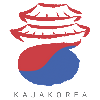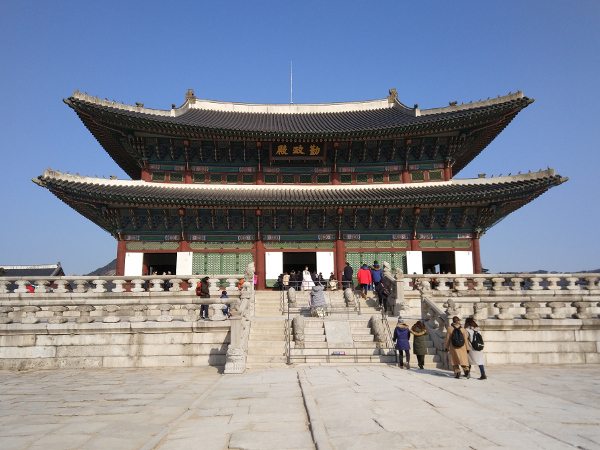Korean Lessons ᚛ Level 2 - Korean for Beginners #1 (Lessons 31 to 60) ᚛ Lesson 60 - Forbidding in Korean [-지 말다]
Forbidding in Korean [-지 말다]
Before learning how to express a prohibition in Korean, one must get to know a very unique Korean verb, which is the verb 말다.
Basically, the verb 말다 is completely irregular and is the only verb that has this particular uniqueness in Korean:
- Imperative in the casual style: 마
- Imperative in the polite style: 마요
- Imperative in the polite style with the honorific: 마세요
- Imperative in the formal style: 마시오
- Imperative in the formal style with the honorific: 마십시오
To express prohibition in Korean, we use the following structure:
[Stem]지 말다
Just like in English, forbidding in Korean uses the imperative form.
With 가다
- In infinitive form: 가지 말다
- In the casual style: 가지 마
- In the polite style: 가지 마요
- In the polite style with the honorific: 가지 마세요
- In the formal style: 가지 마시오
- In the formal style with the honorific: 가지 마십시오
With 피우다
- In infinitive form: 피우지 말다
- In the casual style: 피우지 마
- In the polite style: 피우지 마요
- In the polite style with the honorific: 피우지 마세요
- In the formal style: 피우지 마시오
- In the formal style with the honorific: 피우지 마십시오
As we saw in the course on the imperative in Korean the polite style form is rarely used by itself. Since this involves an order addressed to someone, honorific forms are generally used in this case.
기름진 음식은 많이 먹지 마세요.
→ Don't eat a lot of fatty food.
거짓말하지 마.
→ Don't lie.
바닥에 쓰레기를 버리지 마십시오.
→ Don't throw trash on the ground.
늦은 밤에 시끄럽게 하지 마.
→ Don't be loud late at night. (Lit: Don't do (something) in a noisy way late at night.)
Note that in other structures, the verb 말다 can act in a way similar to verbs that have stems ending in ㄹ, as we will see in different, later chapters.
행복하게 살아. 무리하지 말고.
→ Live happily. And don't overdo it.
Summary table of structure
Learn more
Exercises
Learn more
Get two printable eBooks containing EVERYTHING you need to know to master Korean conjugation. You’ll find all the most commonly used verb forms in Korea, explanations of the many exceptions, detailed conjugation tables for 500 essential verbs and adjectives, and over 1,000 example sentences for everyday situations to help you use these verbs correctly. An absolute must-have no matter your level in Korean!
Learn more

